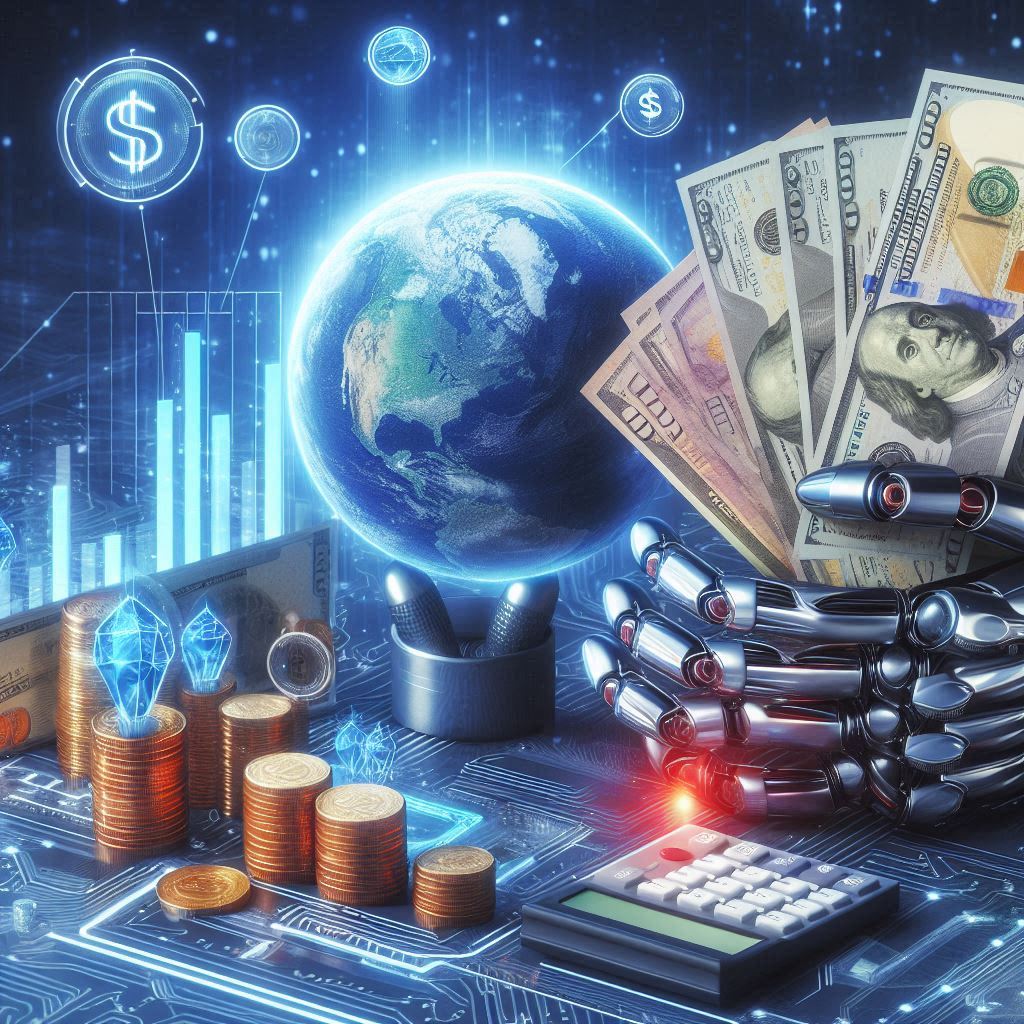As the world evolves, advancements in technology, globalization, and environmental challenges will significantly shape the economy and financial systems by 2050. Predicting the future is not an exact science, but by examining current trends, it’s possible to envision how global finance and economic structures might look. Here’s an exploration of the potential transformations in the economy and financial systems by the middle of the century.
1. The Role of Artificial Intelligence and Automation
• AI-Powered Financial Services:
Artificial intelligence (AI) will dominate financial systems, automating tasks like investment analysis, risk management, and customer service. AI-driven platforms will provide hyper-personalized financial advice and predictive analytics.
• Job Market Transformation:
Automation and robotics will replace many manual and repetitive tasks, shifting the workforce toward creative, managerial, and technical roles. The global economy will rely more on highly skilled workers, requiring significant investments in education and training.
• Smart Contracts and Decentralized Finance (DeFi):
Blockchain technology will enable widespread use of smart contracts, reducing the need for intermediaries in financial transactions. DeFi platforms will allow individuals to access banking and lending services without traditional institutions.
2. Sustainable and Green Economies
• Focus on Sustainability:
By 2050, combating climate change will be a central focus of economic policies. Governments and businesses will invest heavily in green technologies, renewable energy, and carbon-neutral production methods.
• Green Financial Products:
Financial institutions will offer more eco-friendly products, such as green bonds and sustainable investment funds, to support environmentally conscious projects.
• Circular Economy:
A shift toward a circular economy—where resources are reused, recycled, and regenerated—will reshape industries and reduce waste. This model will foster sustainable growth while preserving natural resources.
3. Global Economic Power Shifts
• Rise of Emerging Markets:
Countries in Asia, Africa, and Latin America will play a more significant role in the global economy. Economies like India, Nigeria, and Indonesia are expected to grow rapidly due to young populations and expanding middle classes.
• Decline of Traditional Powerhouses?:
While advanced economies like the United States and Europe will remain influential, their dominance may decrease as emerging markets gain economic clout.
• Regional Trade Blocs:
Regional trade agreements and economic alliances will strengthen, creating interconnected economies that drive mutual growth.
4. Digital Currencies and the Decline of Cash
• Central Bank Digital Currencies (CBDCs):
By 2050, most central banks will likely issue their own digital currencies. CBDCs will provide a secure, government-backed alternative to cryptocurrencies and traditional cash.
• Cryptocurrency Evolution:
Cryptocurrencies like Bitcoin and Ethereum may become mainstream, either as a store of value or as a medium of exchange. Regulation and technological advancements will enhance their security and usability.
• Cashless Societies:
Physical cash will become almost obsolete as digital payment systems and mobile wallets dominate. This shift will improve transaction efficiency but may raise concerns about privacy and data security.
5. The Impact of Population Dynamics
• Aging Populations:
Many advanced economies will face challenges from aging populations, leading to increased healthcare and pension costs. Countries will need to adapt by encouraging immigration, raising retirement ages, and automating care services.
• Youthful Economies:
In contrast, nations with young and growing populations, particularly in Africa, will see rapid economic expansion. Investments in education and infrastructure will be critical for unlocking their potential.
6. Technological Advancements Driving Innovation
• Quantum Computing:
Quantum computing will revolutionize industries by solving complex problems in seconds, driving breakthroughs in finance, healthcare, and logistics.
• IoT-Driven Economies:
The Internet of Things (IoT) will connect billions of devices, creating smart cities, efficient supply chains, and data-driven decision-making in businesses.
• Space Economy:
Space exploration and resource mining on celestial bodies like the Moon and asteroids could open new economic opportunities. Countries and private companies investing in space technology today will lead this frontier.
7. Social and Economic Inequalities
• Addressing Wealth Gaps:
Income inequality may grow without proactive measures. Governments will need to implement progressive tax systems, universal basic income (UBI), and access to quality education and healthcare to bridge the wealth gap.
• Financial Inclusion:
Advances in technology will make financial services more accessible to underserved populations. Mobile banking, microloans, and blockchain-based solutions will empower people in remote and developing areas.
8. Global Governance and Collaboration
• International Cooperation:
Solving global challenges like climate change, cybersecurity, and pandemics will require unprecedented levels of collaboration among nations. Supranational organizations like the UN and IMF will play crucial roles in fostering economic stability.
• Standardized Regulations:
As global financial systems become more interconnected, harmonizing regulations across countries will be essential to ensure fairness and stability.
9. Education and Human Capital Development
• Focus on Lifelong Learning:
Continuous education will be essential to keep up with technological advancements. Governments and businesses will invest in upskilling and reskilling programs for workers.
• STEM Dominance:
Science, Technology, Engineering, and Mathematics (STEM) will remain at the forefront of education to prepare the workforce for future challenges.
Conclusion
By 2050, the global economy and financial systems will be shaped by technology, sustainability, and shifting demographics. While challenges like inequality and climate change will persist, innovation and international cooperation will drive progress. The key to thriving in this future will lie in adaptability, investment in human capital, and a commitment to building inclusive, sustainable economies.
